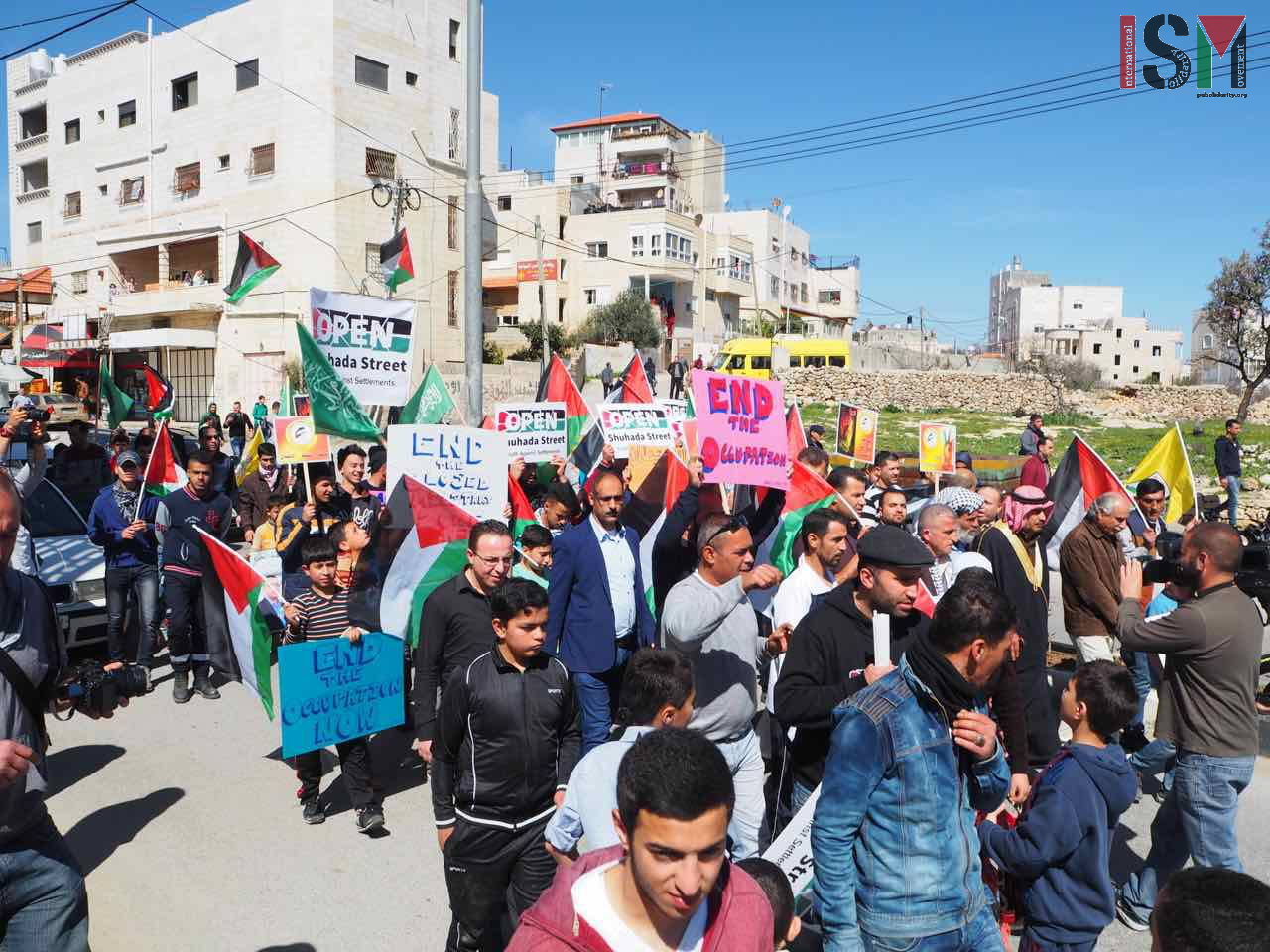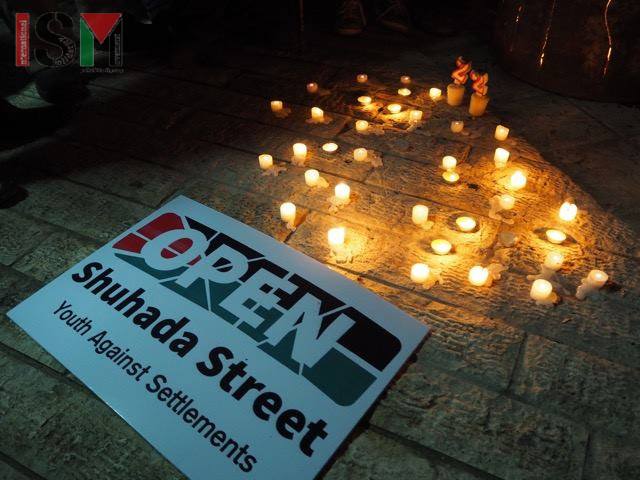Tag: Youth Against Settlements
-
Remembering Balfour under Apartheid
6th November 2017 | International Solidarity Movement, al-Khalil team | Hebron, Occupied Palestine Yesterday in al Khalil (Hebron) the Palestinian group Youth Against Settlements held an event to mark the 100th years anniversary of The Balfour Declaration. The Balfour Declaration is viewed as a foundational document of the Israeli states ethnic cleansing of Palestine. Despite…
-
Demonstrators call for end to unjust restrictions in Hebron 22 years after Ibrahimi mosque massacre
26th February 2016 | International Solidarity Movement, al-Khalil team | Hebron, occupied Palestine On 26th February 2016, Palestinians in occupied al-Khalil (Hebron) jointly commemorated the Ibrahimi Mosque massacre and protested against the closure of Shuhada Street and the illegal Israeli military occupation. The peaceful demonstration, organised by the local activist group Youth Against Settlements as…
-
Aggressive settler interrupts nonviolent commemorative event hosted by Youth Against Settlements
24nd February 2016 | Youth Against Settlements | Hebron, occupied Palestine Notorious settler Anat Cohen interrupted a peaceful movie screening, which was hosted by Youth Against Settlements to commemorate the victims of the Ibrahimi Mosque Massacre in 1994. Every night, Palestinians gather around a bonfire in the Salaymeh neighborhood of occupied Hebron to keep watch…



